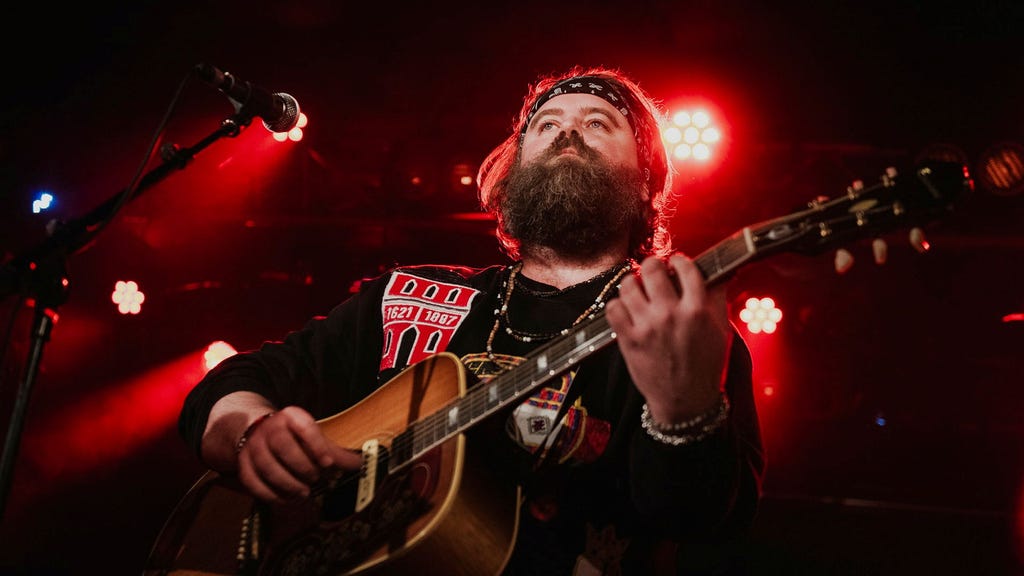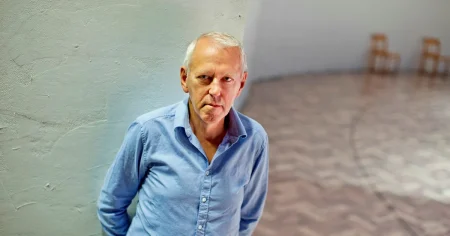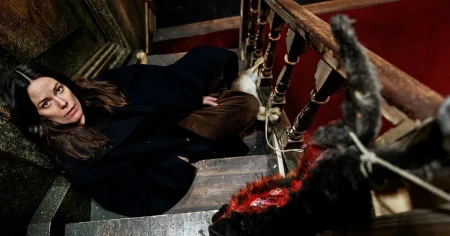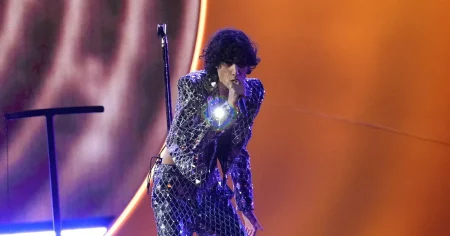H. Self, the stage name of Henric Hammarbäck, a 38-year-old artist, recently performed at Debaser in Stockholm, marking his largest gig to date with an audience of 400. The concert, reviewed here, received a rating of 4 out of 5 stars. Hammarbäck, known for his bandana reminiscent of icons like Tupac, Willie Nelson, or Axl Rose, has seen a surge in popularity since the release of his third album, “Skälva,” sung in his native Swedish. This departure from his previous English-language albums allowed his raw, vulnerable lyrics to resonate with a broader audience, transcending traditional country and Americana fans.
The shift to Swedish marked a turning point in Hammarbäck’s career. While his earlier work resonated with the country and Americana crowd, “Skälva” exposed a new dimension of his artistry, drawing comparisons to Swedish hip-hop, the visceral storytelling of Cornelis Vreeswijk, and the early works of Florence Valentin. The album’s poignant lyrics, exploring themes of alienation and societal struggles, captivated listeners beyond genre lines. The inclusion of a cover of Yasin’s ”Rap är ingen konst” (Rap is not art) further broadened his appeal, bridging the gap between country and hip-hop audiences and solidifying his stance as an artist unafraid to challenge conventions.
The Debaser performance showcased Hammarbäck backed by a seven-piece band, several members being close friends who provided palpable support. The atmosphere was charged with a sense of occasion, marking a milestone in Hammarbäck’s career. Initial nervousness, manifesting as a slight distance from the audience, gradually dissipated as the warm reception from the crowd enveloped the stage. He seemed to initially retreat into the music, perhaps overwhelmed by the significance of the moment, but the palpable energy of the crowd drew him out, creating a connection that resonated throughout the performance.
The setlist spanned an hour and a half, featuring unreleased material in Swedish, a Cornelis Vreeswijk cover, and the aforementioned Yasin cover. Hammarbäck’s introduction of the Yasin track, declaring the Rinkeby rapper as ”the country’s most important artist,” underscored his commitment to amplifying marginalized voices. This bold statement highlighted his belief in the power of music to represent those often overlooked by society. He championed the voices of the marginalized, echoing the sentiments expressed in his own vulnerable lyrics.
A highlight of the evening was “Maggie Brown,” a poignant ballad addressed to Hammarbäck’s ex-wife. The song, beautifully rendered live with the support of the band’s two violinists, showcased the depth of emotion present in his songwriting. Its placement early in the setlist, however, felt somewhat premature, as the audience had not yet fully warmed to the atmosphere of the evening. The emotional weight of the song might have had a more profound impact later in the performance, after the connection between artist and audience had further solidified.
In conclusion, H. Self’s Debaser concert marked a significant moment in his artistic journey. The shift to Swedish lyrics, coupled with his raw and vulnerable songwriting, has resonated deeply with audiences, expanding his reach beyond genre confines. While initial nervousness was palpable, the warmth of the crowd and the powerful performance of his band ultimately transformed the evening into a triumph. The inclusion of covers and new material showcased his versatility and solidified his position as an artist to watch. While the setlist pacing could have been adjusted for maximum emotional impact, the overall performance was a testament to Hammarbäck’s growing artistry and his commitment to giving voice to the marginalized. The concert solidified his transition from a niche country artist to a compelling storyteller with a broad appeal.














